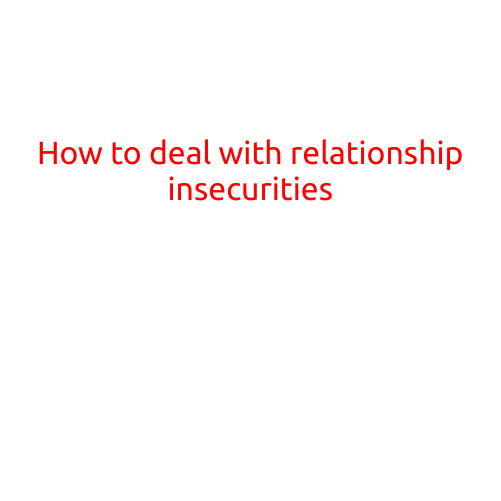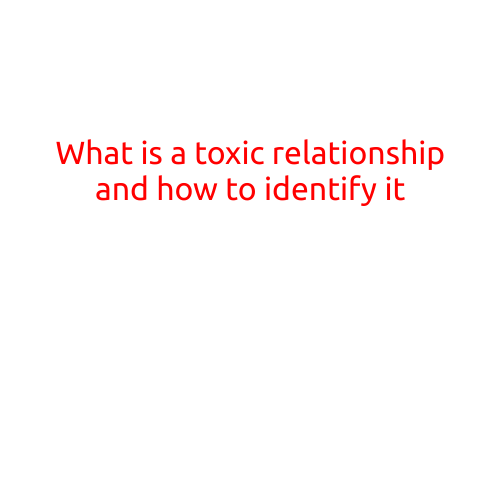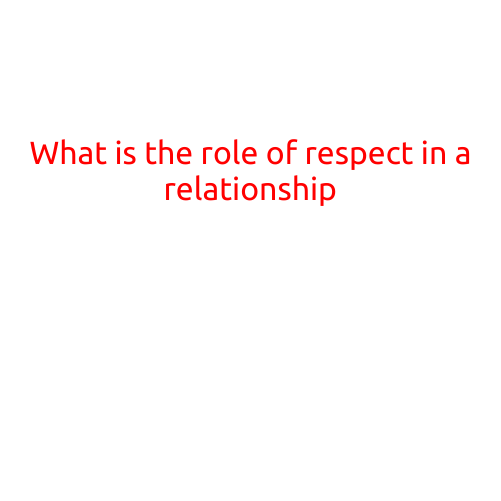
How to Deal with Relationship Insecurities
Relationship insecurities can be a major obstacle to a happy and fulfilling partnership. It’s natural to feel uncertain or uncertain about your relationship at times, but when these feelings become persistent and destructive, it’s essential to address them head-on. In this article, we’ll explore the causes of relationship insecurities and provide practical tips on how to deal with them effectively.
Causes of Relationship Insecurities
Relationship insecurities can stem from various factors, including:
- Lack of trust: Feeling uncertain or betrayed in your partner’s loyalty, honesty, or commitment.
- Past experiences: Traumatic or negative relationships from the past can lead to deep-seated insecurities.
- Low self-esteem: Self-doubt and negative self-talk can create feelings of inadequacy, making it difficult to trust oneself and one’s partner.
- Communication breakdowns: Inadequate or ineffective communication can lead to misunderstandings and feelings of distance.
- Fear of rejection: The fear of being rejected or abandoned can drive insecurities and anxiety in a relationship.
Signs of Relationship Insecurities
Some common signs of relationship insecurities include:
- Obsessive thinking: Constantly thinking about the relationship, your partner, or potential alternatives.
- Anxiety and stress: Feeling on edge, worried, or nervous about the relationship.
- Doubts and fears: Frequent doubts about your partner’s feelings, intentions, or commitment.
- Defensiveness: Becoming overly defensive or reactive when addressing relationship issues.
- Avoidance: Avoiding situations or conversations that might lead to conflict or intimacy.
How to Deal with Relationship Insecurities
If you’re struggling with relationship insecurities, try these tips to overcome them:
- Communicate openly: Share your feelings and concerns with your partner in a non-accusatory and non-defensive manner.
- Practice self-reflection: Identify the sources of your insecurities and work on building self-esteem and self-confidence.
- Rebuild trust: Focus on rebuilding trust by being faithful, honest, and open with your partner.
- Let go of past experiences: Release any negative emotions or experiences that may be holding you back.
- Foster a healthy attachment style: Develop a secure attachment style by cultivating intimacy, emotional support, and a sense of security in your relationship.
- Prioritize self-care: Take care of your physical and emotional well-being by engaging in activities that bring you joy and relaxation.
- Seek professional help: Consider couples therapy or individual counseling to address underlying issues and work towards a more fulfilling relationship.
Conclusion
Relationship insecurities can be a significant barrier to a happy and healthy partnership. By understanding the causes of insecurities and implementing these practical tips, you can overcome them and build a stronger, more loving relationship. Remember to communicate openly, practice self-reflection, and focus on rebuilding trust and fostering a healthy attachment style. With time, effort, and patience, you can overcome your insecurities and cultivate a fulfilling and long-lasting relationship.





